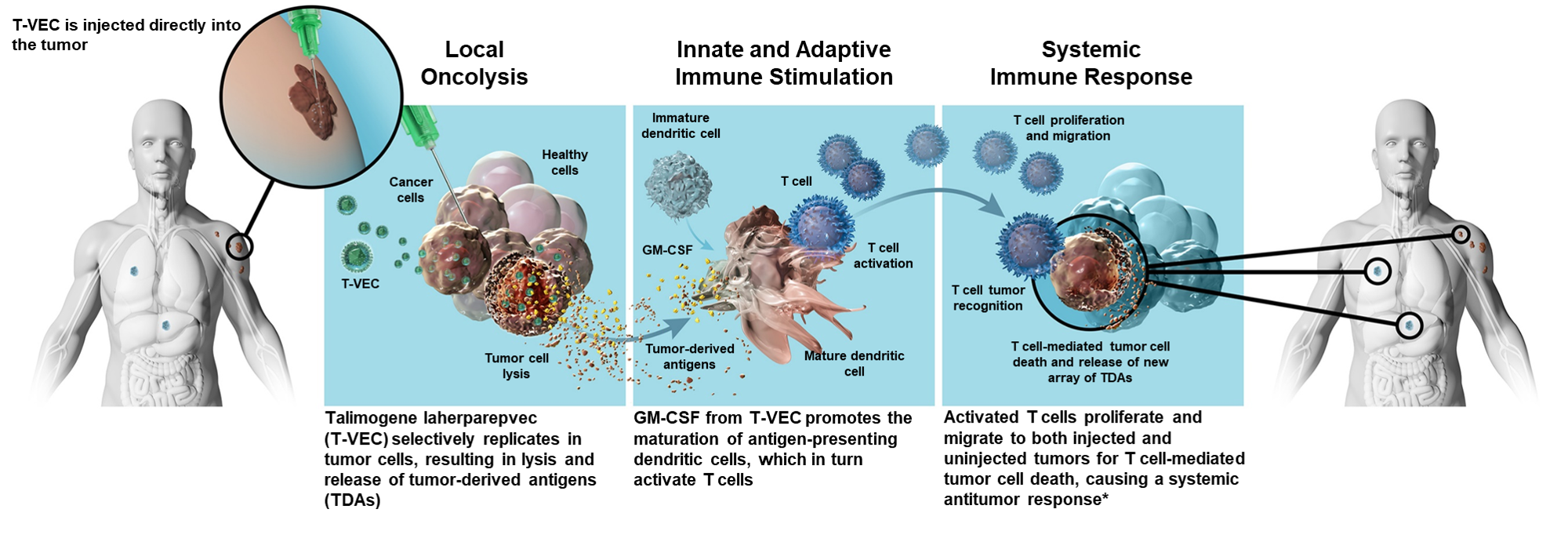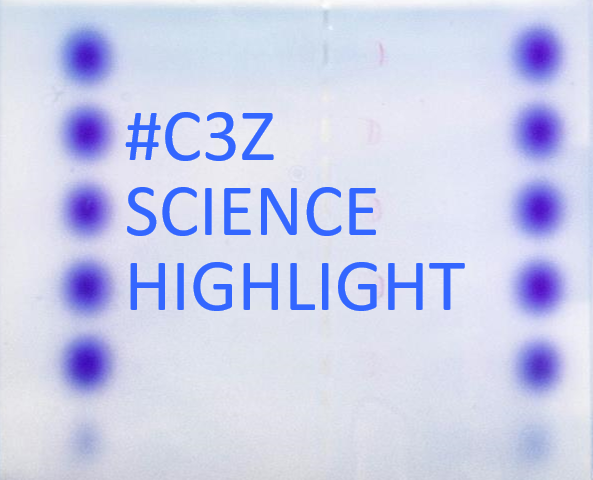Nat Med.
Dummer R, Gyorki DE, Hyngstrom J, Berger AC, Conry R, Demidov L, Sharma A, Treichel SA, Radcliffe H, Gorski KS, Anderson A, Chan E, Faries M, Ross MI *CCCZ Members in bold
Abstract
Talimogene laherparepvec (T-VEC) is a herpes simplex virus type 1-based intralesional oncolytic immunotherapy approved for the treatment of unresectable melanoma. The present, ongoing study aimed to estimate the treatment effect of neoadjuvant T-VEC on recurrence-free survival (RFS) of patients with advanced resectable melanoma. An open-label, phase 2 trial (NCT02211131) was conducted in 150 patients with resectable stage IIIB–IVM1a melanoma who were randomized to receive T-VEC followed by surgery (arm 1, n = 76) or surgery alone (arm 2, n = 74). The primary endpoint was a 2-year RFS in the intention-to-treat population. Secondary and exploratory endpoints included overall survival (OS), pathological complete response (pCR), safety and biomarker analyses. The 2-year RFS was 29.5% in arm 1 and 16.5% in arm 2 (overall hazard ratio (HR) = 0.75, 80% confidence interval (CI) = 0.58–0.96). The 2-year OS was 88.9% for arm 1 and 77.4% for arm 2 (overall HR = 0.49, 80% CI = 0.30–0.79). The RFS and OS differences between arms persisted at 3 years. In arm 1, 17.1% achieved a pCR. Increased CD8+ density correlated with clinical outcomes in an exploratory analysis. Arm 1 adverse events were consistent with previous reports for T-VEC. The present study met its primary endpoint and estimated a 25% reduction in the risk of disease recurrence for neoadjuvant T-VEC plus surgery versus upfront surgery for patients with resectable stage IIIB–IVM1a melanoma.

Proposed Mechanism of Action for T-VEC
Nat Med. 2021 Oct;27(10):1789-1796
doi: 10.1038/s41591-021-01510-7

